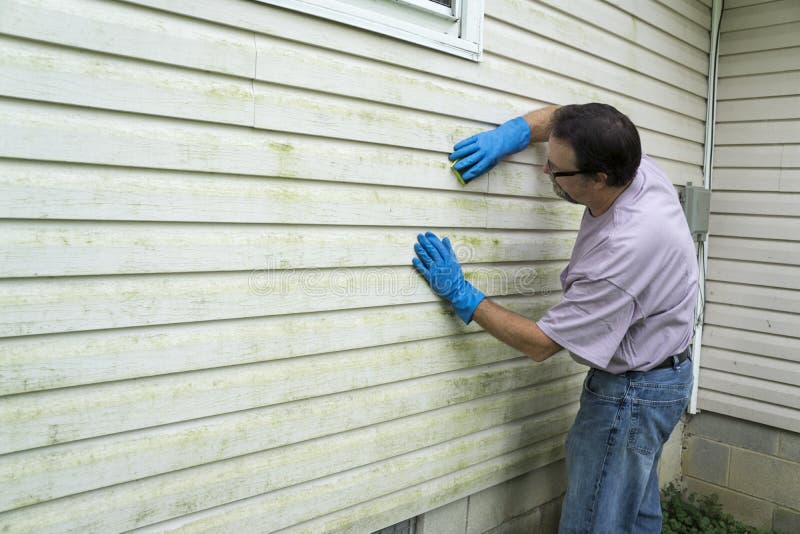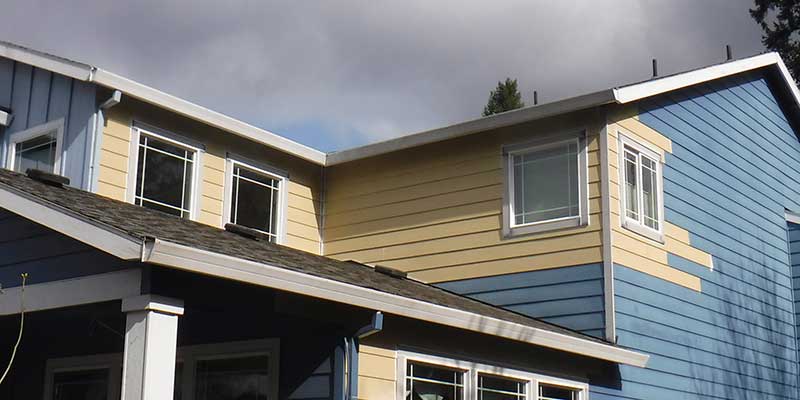Reliable Morris Siding Contractor Specializing in Residential Siding Projects
Reliable Morris Siding Contractor Specializing in Residential Siding Projects
Blog Article
The Vital Guide to the Different Sorts Of Home Siding and Their Unique Advantages
In the world of home enhancement, choosing the ideal home siding is a crucial choice that influences both visual charm and practical performance. With so many options to consider, which house siding product genuinely stands out for your certain project?
Wood House Siding
Timber exterior siding, a popular choice for household outsides, provides a timeless visual that integrates natural beauty with architectural stability. This siding product is offered in various designs, including clapboard, shingles, and board-and-batten, permitting house owners to customize their appearance to match their style preferences. Timber exterior siding is typically crafted from sturdy types such as cedar, redwood, or pine, which are recognized for their resilience and capacity to endure ecological stressors.
Among the main advantages of wood siding is its exceptional insulation buildings, which can contribute to power effectiveness and reduced heating prices. Additionally, timber siding is naturally degradable, making it an environmentally pleasant alternative when sourced sustainably. Routine upkeep, including painting or discoloration, can prolong its life expectancy and boost its appearance, enabling homeowners to protect the all-natural beauty of the wood.
Nonetheless, potential disadvantages consist of susceptibility to parasites, rot, and weather damages, demanding ample treatment and maintenance - morris siding contractor. In spite of these worries, when appropriately looked after, wood house siding can offer a beautiful and resilient service that improves the character of a home while offering a cozy, inviting environment

Plastic House Siding
Vinyl house siding has actually become a leading selection for property owners looking for a low-maintenance exterior choice that combines durability and cost. This versatile product is crafted from polyvinyl chloride (PVC), making it immune to different weather, consisting of wetness and UV rays. As an outcome, vinyl home siding does not warp, rot, or fade, making sure long-lasting aesthetic allure.
One of the main advantages of vinyl home siding is its extensive series of shades and styles, allowing house owners to attain the desired seek their property without the requirement for constant repainting. In addition, vinyl home siding is very easy to install, which can substantially lower labor costs during building or improvement tasks.
Vinyl exterior siding likewise adds to power efficiency. Numerous choices function insulation support, which boosts thermal efficiency, helping to maintain comfortable indoor temperature levels and possibly decreasing power bills. Its smooth surface helps with simple cleansing, requiring just routine cleaning with a yard hose to remove dust and particles.
Fiber Concrete House Siding
Fiber concrete home siding has acquired grip among homeowners and contractors alike due to its remarkable mix of longevity and visual adaptability. Composed of a mixture of cement, cellulose, and sand fibers, this siding alternative is crafted to endure extreme climate condition, including high winds, hefty rainfall, and temperature fluctuations, making it a long-lasting selection for domestic exteriors.

One of the primary advantages of fiber concrete home siding is its resistance to pests, such as termites, and its non-combustible nature, offering improved fire safety and security. morris siding contractor. Furthermore, it is available in a vast array of styles, appearances, and colors, enabling home owners to achieve their preferred visual without sacrificing performance
An additional advantage is its low upkeep needs; fiber cement home siding commonly needs paint or discoloration every 5-10 years, which is much less frequent than other materials. Its long life adds to a reduced total price of ownership, as it reduces the requirement for regular fixings or substitutes.
Eventually, fiber concrete siding stands for an excellent investment for those looking for a resilient, eye-catching, and functional exterior choice, integrating both type and function to enhance the home's curb appeal.
Metal Home Siding
The allure of steel siding hinges on its durable durability and modern visual allure, making it a preferred option for contemporary style. Readily available in products such as aluminum and steel, metal siding supplies a series of shades and coatings, enabling property owners to achieve a personalized appearance that matches their style vision.

Energy efficiency is one more considerable advantage, as lots of metal home siding items are made with insulation alternatives that help regulate indoor temperatures. This can result in minimized power costs over time. Additionally, metal exterior siding is typically recyclable, making it an ecologically check my blog pleasant option for sustainability-minded property owners.
The setup process for steel house siding can be relatively uncomplicated, causing a quicker turn-around time for building and construction tasks. On the whole, steel house siding incorporates capability and style, making it a useful option for those looking for a aesthetically enticing and enduring exterior coating.
Brick and Rock House Siding
Block and stone siding attracts attention as an ageless choice that boosts the visual charm of any home. Known for their toughness and low upkeep, these materials give an exceptional roi while elevating the property's curb appeal. Available in numerous colors, appearances, and patterns, brick and rock can be tailored to fit varied architectural designs, from conventional to modern-day.
One of the main benefits of block and stone home siding is their power efficiency. Both materials have all-natural shielding residential properties that help control interior temperature levels, possibly reducing heating and cooling expenses. In addition, they offer exceptional fire resistance compared to other home siding alternatives, adding to enhanced safety.
One more Get More Info benefit is their durability. Block and rock can last for years, usually requiring minimal upkeep beyond occasional cleaning. Unlike wood home siding, they are resistant to pests and rot, ensuring a lasting exterior that withstands the elements.
Conclusion
In summary, the selection of siding significantly impacts a home's visual allure, power performance, and upkeep demands. Each sort of exterior siding-- whether wood, plastic, fiber brick, metal, or concrete and rock-- provides distinct benefits customized to numerous house owner preferences and environmental problems. Recognizing these alternatives makes it possible for notified decisions that boost both the durability and aesthetic beauty of domestic exteriors. Inevitably, picking the ideal exterior siding is important for achieving an equilibrium in between capability and layout in residential style.
One of the key benefits of timber browse around these guys siding is its exceptional insulation buildings, which can contribute to power performance and lower heating prices. Additionally, wood home siding is biodegradable, making it an ecologically pleasant alternative when sourced sustainably.One of the primary benefits of steel house siding is its resistance to various environmental aspects.Power efficiency is one more considerable benefit, as many metal exterior siding items are made with insulation options that help control indoor temperature levels. Each kind of house siding-- whether wood, vinyl, fiber cement, metal, or brick and stone-- provides special advantages customized to different home owner choices and ecological problems.
Report this page